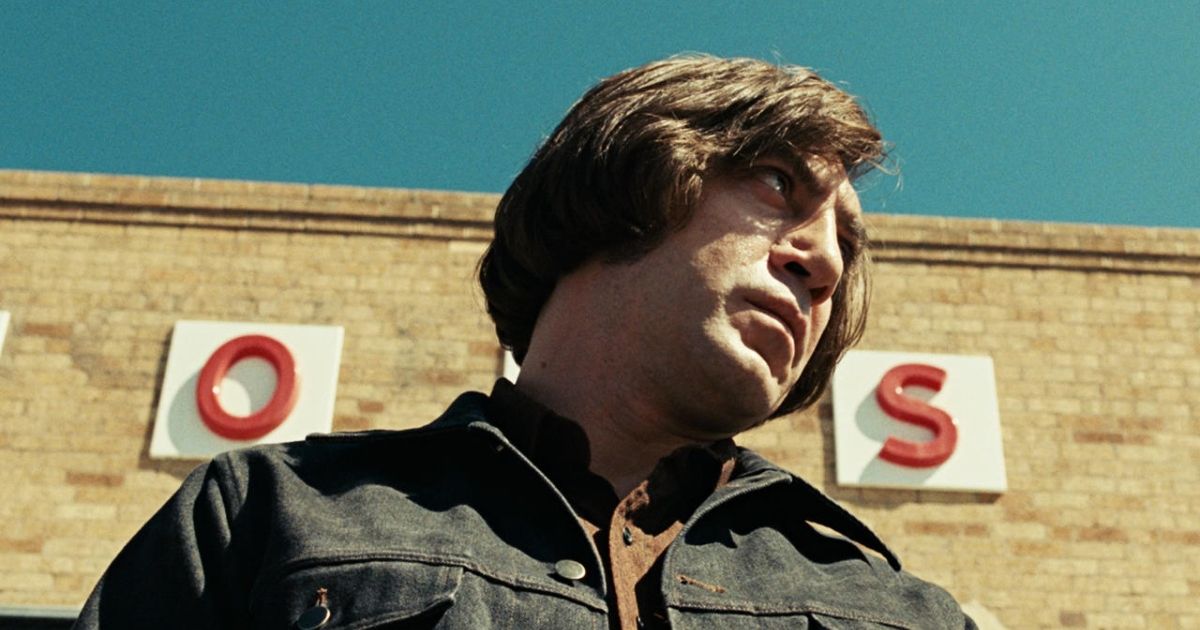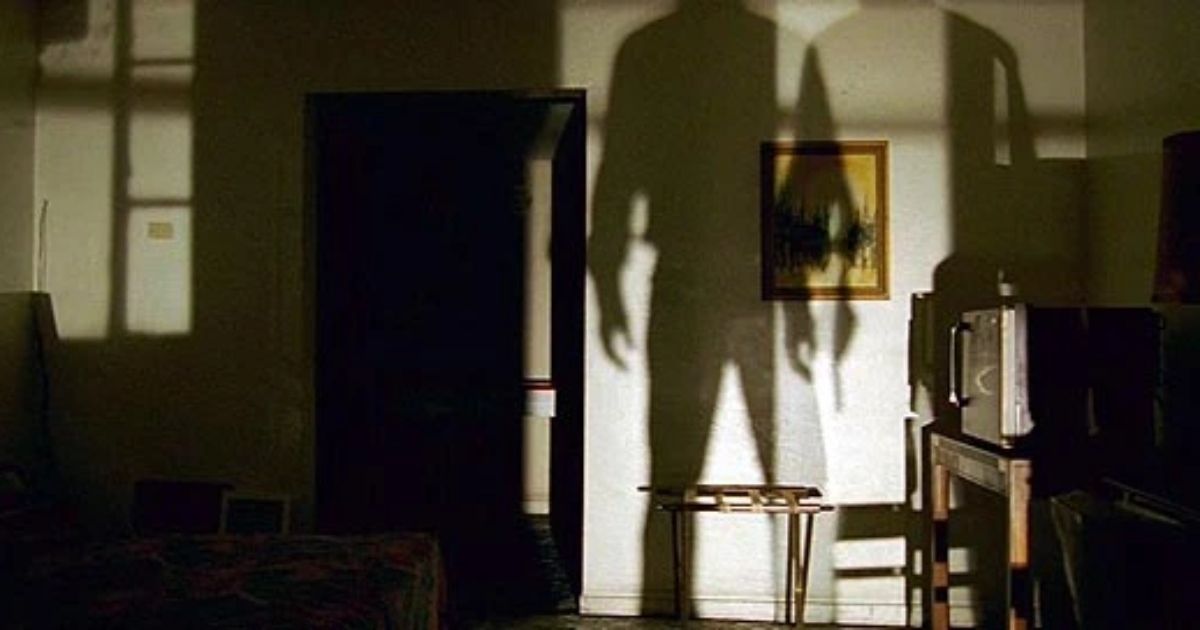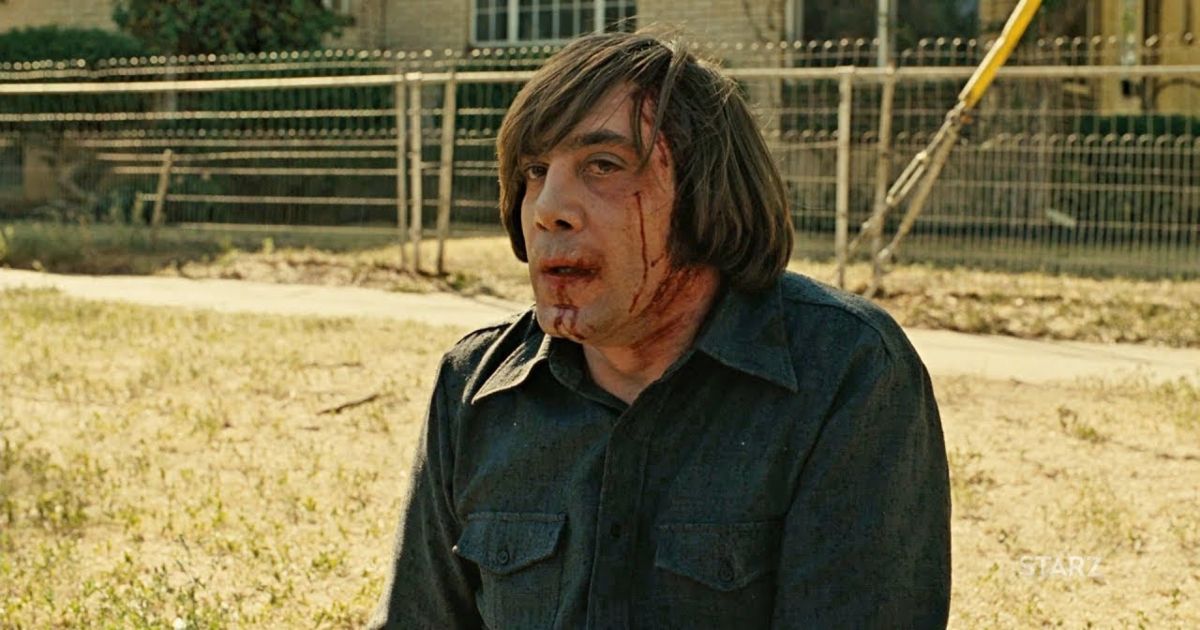The 2007 film No Country for Old Men has everything you’d expect from a Coen Brothers movie: fate, conscience, plans gone awry, violence, and dry humor. Notorious producer Scott Rudin purchased the movie rights to the original book by Cormac McCarthy back in 2004 and soon after suggested a film adaptation to the Coens. While the Coen’s had read many of McCarthy’s books, No Country for Old Men drew their attention in particular. McCarthy’s novel follows an illegal drug deal gone wrong in the rural back country of Texas. The novel’s structure is more minimalist than his other works because the story started as a screenplay. That served as a jumping-on point for the Coen Brothers, who thought about how to adapt it to a film and how it would be an unconventional Hollywood movie.
Updated May 9, 2023: This article has been updated with additional analysis of No Country for Old Men and the nature of the film’s message.
Just as the Coens predicted, some critics were displeased with the film’s offbeat structure and characters when it was released in 2007. Critic Andrew Sarris of The New York Observer called the collaboration between Cormac McCarthy and the Coen Brothers “a match made in hell,” Many viewers were baffled by its seemingly arbitrary ending. Despite these reactions, No Country for Old Men scored an impressive 93% on Rotten Tomatoes, was a box office hit, and won the Academy Award for Best Picture that year. So whether you are satisfied or frustrated by the film, confused, or simply curious, here is the ending of No Country for Old Men explained.
A Brief Summary
No Country for Old Men opens in the year 1980 and shows the shockingly evil Anton Chigurh, a hitman played by Javier Bardem, in police custody. Chigurh escapes by strangling a sheriff and murdering a stranger to steal his car, which he drives to an isolated gas station. Chigurh flips a coin to decide whether the gas station owner should die and commonly uses this technique to determine his victim’s fates throughout the film.
Meanwhile, a man named Llewelyn Moss, played by Josh Brolin, is out hunting when he comes across the scene of a drug deal gone bad. Amid the wreckage and dead men, Llewelyn discovers a briefcase of two million dollars and takes it home, where his wife, Carla Jean, portrayed by Kelly McDonald, is waiting. Nervous that someone will be looking for the money, Llewelyn sends Carla Jean to stay with her mother, and he goes to stay in a motel in Del Rio, where he hides the briefcase. Chigurh has been hired to retrieve the money and, after searching Llewelyn’s house, follows the briefcase’s tracking device to his motel in Del Rio. Terrell County Sheriff Ed Tom Bell, played by Tommy Lee Jones, investigates Chigurh’s break-in.
The Fate of Anton Chigurh and Carla Jean
Once Chigurh arrives at the motel, Llewelyn retrieves the money from its hiding place in a vent and moves to another hotel in Eagle Pass. Shortly after Llewelyn discovers the briefcase’s tracking device, Chigurh finds him. There is a shootout, but Llewelyn survives and stashes the money once again, planning to meet Carla Jean and hand off the briefcase to her.
Sheriff Bell visits Carla Jean and promises to protect Llewelyn in exchange for information. Carla Jean’s mother accidentally reveals Llewelyn’s location to a group of Mexicans who find Llewelyn at Eagle Pass and shoot him in the parking lot. Sheriff Bell discovers Llewelyn’s body and visits Llewelyn’s room, where the money has already been retrieved by Chigurh. Shortly after, Sheriff Bell speaks to his uncle about his plans to retire and leave the violence behind.
Sometime later, Carla Jean arrives home to find Chigurh hiding in her house and challenges his coin toss, telling him not to blame luck for his choices. Her fate is left ambiguous, and as he is driving out of her neighborhood, a car crashes into his and leaves him severely wounded. Chigurh stumbles out of the wreckage, limping and bleeding, and pays two young boys to keep quiet about what they saw before he hobbles into the distance. The very end of the film features Sheriff Bell recounting two dreams to his wife, one about losing some money his father gave him and the other about him and his father horseback riding through the snow while his father led the way through the darkness with a torch.
The Ending of No Country For Old Men, Explained
So, who is the main character, anyway? There are several characters to follow here, and much of the film’s attention focuses on Llewelyn’s escape from Chigurh. But neither Llewelyn nor Chigurh delivers the underlying message here. We can conclude that while we watched the events that led to Sheriff Bell’s retirement more than Bell himself, the story is about Bell’s perspective of violence; he is representative of the titular ‘old men.’ This is illustrated by his two dreams. The first dream, in which Bell loses the money his father entrusts to him, seems to express his guilt over the outcome of Llewelyn’s case. Bell was assigned a task to protect something and failed. He seems disconnected from the meaning of the dream, which suggests his unconscious guilt.
The second dream appears to represent Bell’s past, where good and evil, light and dark, were always clear. In the vision, Bell rides on horseback with his father on a snowy night, who leads the way with a torch. The torch seems to represent values and the black-and-white moral perspective of Bell’s past, which he hopes will be carried into the future. However, Bell remarks that he is now as old as his father in the dream and appears doubtful that the definitive lines of good and evil will be carried into the future.
America is no longer a country for old men like him, as postmodernism and nihilism take hold of the culture. Interestingly, No Country For Old Men is often called a nihilistic film. Still, it seems to be about an older, more ethically unambiguous person lamenting the chaos and nihilism that the country is headed toward.
What Do the Major Characters Represent?
Each of the three central characters is distinct in how they set out to face the challenges presented by the world. This heavily factors into the position they occupy by the film’s closing. Llewelyn acts as the honorable soldier who believes he can outwit his foes, and yet despite his virtues, he’s abruptly killed off before he can defeat his enemies. Chigurh appears to embody the universe’s tendency towards chaos, behaving less like a human being and more as a terminator-like machine until he becomes entangled within the nature of fate that he preached when he gets involved in a severe car crash. Finally, there’s Sheriff Bell, who represents the wandering outsider, a man who grows increasingly weary of the world he once thought he knew, only to later admit defeat and retire.
All three characters can also be defined by the set of morals they use throughout the story. Llewelyn, a Vietnam War veteran, follows a traditional honor code of sorts, choosing to do the morally good thing by bringing water to a dying man and remaining faithful to his wife. Chigurh derives his morals from the universe’s indifference, remaining detached from his murderous actions and operating with an impartial judgment, as explained to the gas station clerk. As a sheriff, Ed Tom Bell enforces the rule of law, personally vowing to protect those in need and blaming himself when things inevitably go wrong.
Several theories suggest Chigurh is not even a real person but merely a manifestation of the violent universe. This idea stems from a scene near the end of the film when Sheriff Bell returns to the motel where Llewelyn was killed in hopes of finding some clues, only to discover the door handle pushed in. We cut to a shot of Chigurh inside the room, implying a confrontation is imminent, only for the sheriff to swing the door open and find nobody inside. Even if this is not literal, symbolically, this scene perfectly illustrates the film’s message that evil is not dependent on a single villainous person, but rather, it is a symptom of the larger world, one that Sheriff Bell decides he’s unequipped to deal with.
What Does the Film Have to Say About Our World?
After witnessing the tragic events of the film, one has to ask: is our world a fundamentally evil place? And if it is, how does one deal with injustice and immorality when things naturally gravitate toward chaos? The unfortunate fate which befalls Llewelyn recalls the old ironic saying, “No good deed goes unpunished,” as his morally good actions are rewarded only with suffering and, eventually, his death. It would also seem that the hero’s demise leads Sheriff Bell to finally surrender, believing that the world has become too much for someone his age to handle.
This ties into the universal theme of good versus evil and whether one will succeed in conquering the other. The crux of this theme can be summed up with this line spoken by Sheriff Bell’s uncle: “It’s not all waiting on you; that’s vanity.” The truth is that the world has always been filled with these struggles between good and evil, and one person cannot save or destroy it alone.
The film’s ending implies that while bad things will inevitably happen to good people, this is simply the nature of the world we inhabit. In order to survive, we can try to do what is right, but we should also recognize that things will happen that we cannot anticipate. While there will always be those who act violently or selfishly due to greed, one can still choose to fight or run from this evil. Most importantly, we should understand that, just as the world does not rely on one lonely hero to save the day, a single death does mean that there is no hope for defeating evil. In this sense, the ending could be seen as having a generally neutral outlook on our greater world.
What’s the Point of No Country For Old Men?
There are some complaints that the ending and overall structure of the film are anticlimactic. Critic David Denby of The New Yorker comments that after seeing Llewelyn “escape so many traps, we have a great deal invested in him emotionally, and yet he’s eliminated, off-camera, by some unknown Mexicans. He doesn’t get the dignity of a death scene.”
That same kind of arbitrary, anticlimactic, spontaneous violence happens to Chigurh himself. The villain of the film, Chigurh, seems to be symbolic of fate, chance, and the chaos of life. He makes decisions based on a coin toss and seems almost superhuman in his abilities. He is practically an incarnation of the violence inherent in the universe, but even he is susceptible to chance, as his car is plowed into by some anonymous character. Like Llewelyn, his ultimate fate is out of his hands, and he’s at the mercy of blind chance. The odds of a coin toss are even too good for this world.
Although the story is told in an unconventional way, refusing to give the audience the satisfaction of traditional narrative moments and resolutions, No Country For Old Men remains a powerful, thought-provoking piece. It is frustrating, just as the Coens wanted.
This story originally appeared on Movieweb



.jpg)


